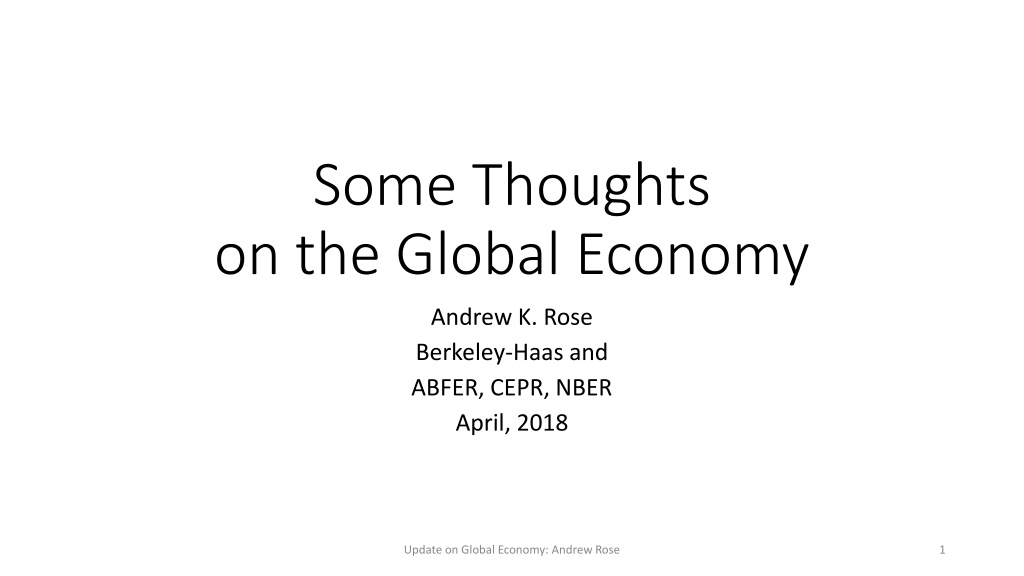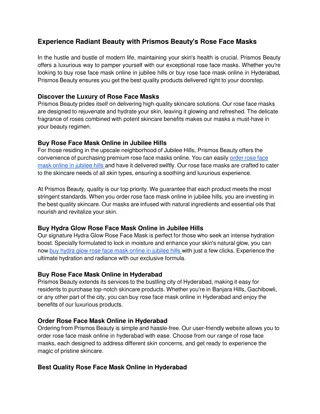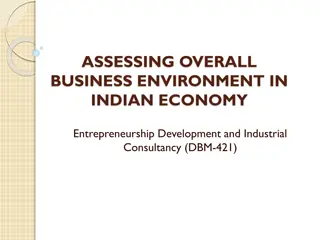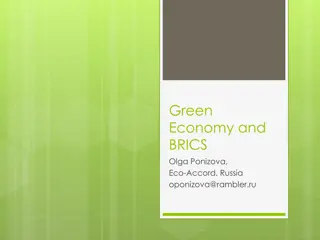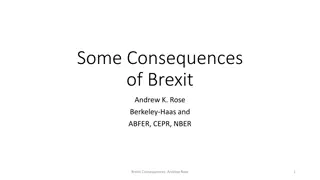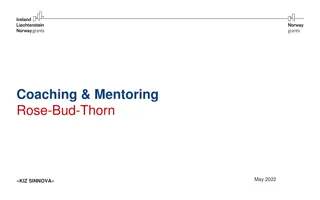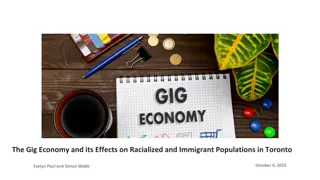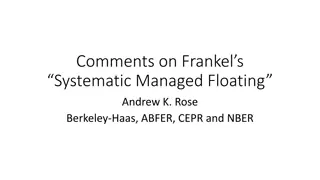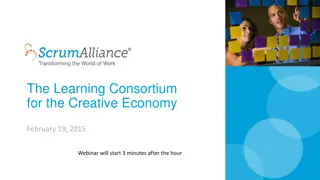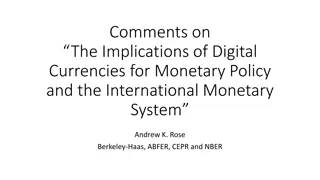Insights on the Global Economy by Andrew K. Rose
The discussion by Andrew K. Rose highlights various aspects of the global economy, including cyclic upturns, potential trade and real wars, fiscal challenges, population aging, and low productivity growth. The American fiscal and monetary policies, along with future trends in capital flows and exchange rates, are examined in detail. The analysis underscores the complexities and uncertainties facing the global economic landscape.
Download Presentation

Please find below an Image/Link to download the presentation.
The content on the website is provided AS IS for your information and personal use only. It may not be sold, licensed, or shared on other websites without obtaining consent from the author.If you encounter any issues during the download, it is possible that the publisher has removed the file from their server.
You are allowed to download the files provided on this website for personal or commercial use, subject to the condition that they are used lawfully. All files are the property of their respective owners.
The content on the website is provided AS IS for your information and personal use only. It may not be sold, licensed, or shared on other websites without obtaining consent from the author.
E N D
Presentation Transcript
Some Thoughts on the Global Economy Andrew K. Rose Berkeley-Haas and ABFER, CEPR, NBER April, 2018 Update on Global Economy: Andrew Rose 1
Bigger Picture Global Economy experiencing cyclic upturn Europe growing > 2% (!), Japan > 1% (!!) Medium Term Issues with Potential Trade War More Serious Possibility of Real War (Korea, Iran) Longer Term picture looks bleak Fiscal Woes in Rich Countries Population Aging Low Productivity Growth Japan as the leader in all such things Uncertain Impact of Climate Change Update on Global Economy: Andrew Rose 2
Wheres the Excitement? America East Asia, especially Korea and China EU Not: Africa, Latin America, South/Central Asia Financial Markets? Rising VIX, flatter yield curve, rising TED spread (LIBOR-FedFunds) Update on Global Economy: Andrew Rose 3
American Fiscal Policy Fiscal expansion coming at #$%^&*() time Full employment (or close to) Debt levels high Population aging Likely to add to inequality Leads to temporary acceleration of growth Pro-cyclic fiscal policy (!), reduced future shock absorber capacity Update on Global Economy: Andrew Rose 4
American Monetary Policy Monetary tightening likely to continue apace New Fed will behave much like old Powell, Williams, Clarida all mainstream, respected But lower real interest rate means reduced future room to respond to shocks QE debt being unwound, but QE may resurface Sheer quality of Fed leadership falling Update on Global Economy: Andrew Rose 5
In the Future: Capital Flows and Exchange Rates American fiscal expansion pushing up US interest rates Similarly, monetary tightening is also raising US rates Both serve to attract capital inflows, appreciate Appreciation of dollar, worsening of US current account seems likely Undermined by Trumpian uncertainty? Will affect all countries in American sphere of financial influence especially developing and emerging markets in Latin America, Caribbean, Asia-Pacific Trump concern with current account deficit ( Savings Investment) means that savings should rise not fall to lower current account deficit Update on Global Economy: Andrew Rose 6
Trade War Coming? Unusual for trade tensions during good times Ironic that USA, creator of rules-based system, now undermining it Violating old agreements raises geopolitical tension Ex: Iran nuclear deal and Korean Update on Global Economy: Andrew Rose 7
Should America Care about Trade? Agreement that trade matters for employment, wages China shock well documented Especially in manufacturing-intense areas and for low-wage unskilled workers Continuing role for high quality public education! Also consensus that automation matters much more over long periods of time The one issue Trump cares about consistently Bilateral deficits a special mystery Hence continuing uncertainty over NAFTA Special tension with countries with large current account surpluses China, Japan, Germany a rival and two key allies So far, more bluster than action but in future ? Update on Global Economy: Andrew Rose 8
Economists and Free Trade Essentially all conventional economists agree that trade should be free. Why? 1. Free trade doesn t help everyonein theory or practice. But 2. Tariffs are almost never the targeted solution to a problem Other trade barriers (quotas, NTBs) are worse than tariffs 3. Tariffs create microeconomic distortions, inefficiency Consumers pay more, a few producers gain, customs officials and smugglers benefit Harberger Triangles are small but add up over long periods of time Trade is often deflected or redirected 4. Imports are often inputs, raising costs 5. Tariffs redistribute the wrong way 6. Tariffs create wasteful vested interests, so hard to eliminate 7. Tariffs invite retaliation (especially with legacy of national humiliation Chinese Unequal Treaties after Opium Wars) 8. Tariffs have minor macroeconomic effects, especially with floating exchange rates (which tend to offset) Update on Global Economy: Andrew Rose 9
Trade War, continued Has it started already? No official declaration; tariffs often raised/lowered Tariff increases don t always invite retaliation Nixon 10% 1971 import surcharge Trump s steel/aluminum tariffs (March) Lobbyists have removed allies (Argentina, Australia, Brazil, Canada, EU, Korea, Mexico) Stock market hates trade disruption; probably critical moderating influence Still, WTO ignored, national security rationalization a new (low) first But China has retaliated to steel/aluminum tariffs (April) Trump threatening further retaliation (April) China responds (April); Spiraling escalation? China s respond carefully calibrated, restrained thus far Update on Global Economy: Andrew Rose 10
US-China Trade War China runs bilateral surplus, hence more to lose (Similar to saying one country can lose more from nuclear exchange) Hence Chinese responses targeted (pork, bourbon, soybeans, narrow body airframes, ) Can do much more (iPhone assembly: a national security threat?) China has higher Export/GDP Hence interested in preserving WTO, rules-based trading system Also Chinese use of WTO helps other countries, provides soft power for China to pursue other initiatives (Taiwan, South China sea, etc.) China owns > $1 trillion of US treasuries Unconventional weapon (harms China) Update on Global Economy: Andrew Rose 11
US-China Trade War, continued Consensus that China does violate letter and spirit of intellectual property agreements in WTO. (Not everything Trump does is wrong!) Industrial espionage, forced licensing and joint ventures But ineffectual response; more effective to create WTO-based coalition Timing unfortunate; steel/aluminum were first, but are minor and divisive Ironic that TPP intended to harness China, but Trump left Update on Global Economy: Andrew Rose 12
US-China Trade War, continued As Chinese economy and trade grow, American influence recedes Remember Nixon Shock of 1971 tariffs, combined with Vietnam But no viable alternative to American leadership; now China (and possibly India eventually) Continuing great need for international cooperation on transnational issues Climate Change Terrorism Cyber-Crime Nuclear weapons (Korea, Iran) Update on Global Economy: Andrew Rose 13
Korea: the Current Epi-Center North Korean nuclear disarmament summit ? But Trump pushing on South Korea vis- -vis trade Trump: KORUS a horrible deal But renegotiation was trivial (reduced Korean steel exports, maintain US tariffs on small trucks [that Korea doesn t export] and raise Korean car import limits [Koreans don t buy US cars]). Trump also irritating Japan Update on Global Economy: Andrew Rose 14
Back to China Xi s power consolidated; political stability Less Concern for break-neck GDP growth Lingering concerns of high debt levels Though much because of infrastructure Debt ratios stabilizing More concern for environment Aging population (working age population peaked in 2011) Maturing economy means more services, less manufacturing More consumption, less investment Measurement and productivity issues with services Update on Global Economy: Andrew Rose 15
The American-Chinese comparison: Calm! 1. 2. 3. US has good demographics (especially for a rich country) Energy independence Technological pre-eminence Biotech, Nanotech, AI, IT But China catching up fast in some areas Research creation Universities (in Shanghai Jioa Tong University rankings,16 of top 20 universities are in US, none in China) Role of US Dollar Corresponds to pre-eminent navy Geography US is surrounded by oceans and allies; China has 14 land borders, many disputes), spur for Belt and Road Initiative Alliances, military, openness to foreign ideas (if not all foreigners) 4. 5. 6. 7. Update on Global Economy: Andrew Rose 16
EU Growth rising, the universal balm Continuing tension because of large German current account surplus Mostly though, EU is inward-looking Grexit still unresolved, EMU tensions Italian election and new government? Serious financial issues; weak banking system and high national debt Spain has to contend with Catalan separatism Rise of illiberal democracy in Hungary, Poland Migration the new key issue Only bright spot: French reforms Macron s rail strikes could be the tipping point And then there s the UK Update on Global Economy: Andrew Rose 17
Britain Brexit still a complete mess, decisions coming VERY soon A big long-term issue Little visible effect thus far, but trade ties sticky Productivity still growing slowly a BIG issue if persistent But cyclic upturn currently Consequence of European upturn in business cycle? Update on Global Economy: Andrew Rose 18
Summary: What to Look at in the Short Term 1. Trade Disputes NAFTA China 2. Geopolitical Disputes of Consequence and Immediacy Korea Iran 3. European Issues Brexit French Reforms Italian Government Handling illiberal democracies in Hungary, Poland Update on Global Economy: Andrew Rose 19
